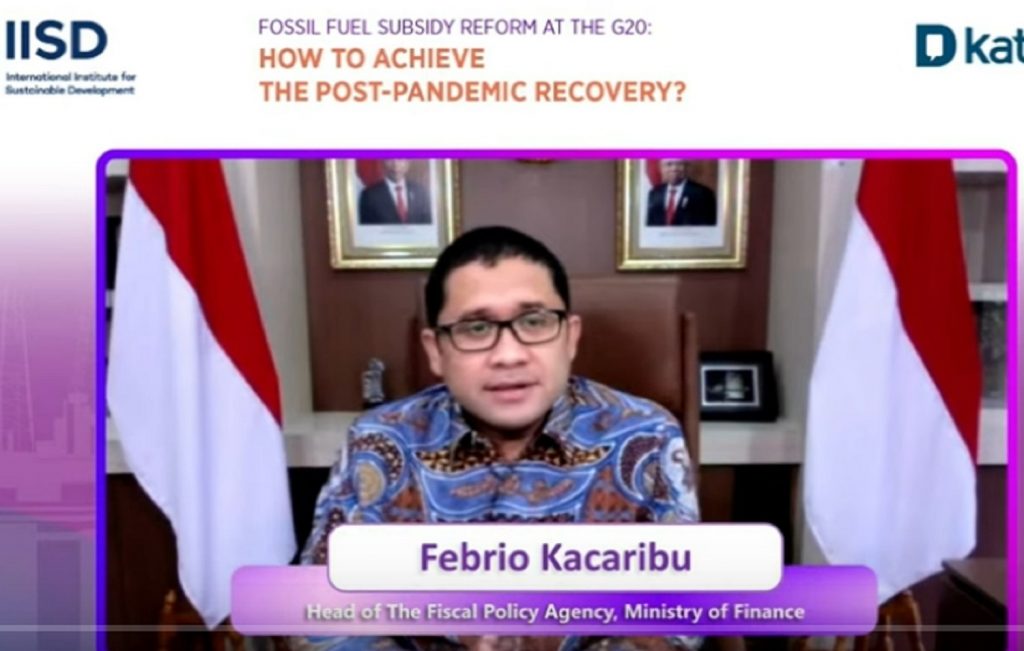
JAKARTA – The government will no longer intervene in determining energy prices and leave energy prices to market mechanisms, officials said Wednesday (16/3). Poor and vulnerable groups will still be able to receive subsidies through other schemes including cash transfers or income benefits, to maintain their purchasing power to access sufficient energy.
“The government will think about the type of assistance that will be given to the poor and vulnerable groups so that they can still afford to buy,” said Head of the Fiscal Policy Agency (BKF) of the Ministry of Finance (Kemenkeu) Febrio Kacaribu in the webinar ‘G20 Fossil Fuel Subsidy Reform’, Wednesday (16 /3).
He claimed that the aid scheme is one of the points of energy subsidy reform hoped that it would create energy security and support economic activity in the future. Kacaribu is also optimistic that this year will present the opportunity to improve energy subsidy policies albeit overshadowed by considerable challenges.
“In principal, we ensure that prices are left to market mechanisms according to efficient economic prices,” he added.
Kacaribu said that Indonesia had already started energy subsidy reforms in 2015, by remiving premium fuel subsidies, fixed subsidies for diesel and 12 electricity customers groups from the list of subsidy recipients.
“The result of the energy subsidy reform in 2015 is significant fiscal space in the state budget. The energy subsidy budget fell from IDR 341 trillion to IDR 119 trillion or saving 65 percent. The addition of fiscal space allows the government to increase the budget for other sectors such as infrastructure, social assistance funds and also the budget for education and health,” said Febrio.
The government has ensured that it will continue to reform energy subsidies in 2022 and in the years to come.
Meanwhile, Head of the Center for State Revenue and Expenditure Budget Policy Fiscal Policy Agency (BKF) Ministry of Finance Wahyu Utomo said the fuel subsidy reforms that had been carried out in 2015 and electricity subsidies in 2017 were important lessons in changing the mindset from consumptive spending to productive spending.
“Changing less productive spending into productive spending. This is an energy subsidy policy that is right on target,” Utomo said. (Hartatik)














